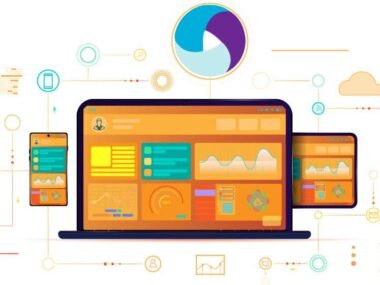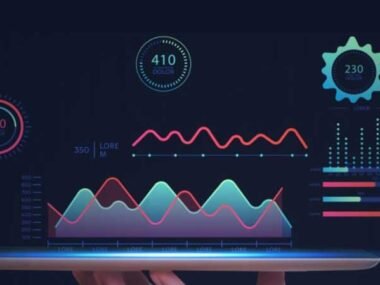Digital marketing has changed drastically over the past few years. A core enabler of this transformation has been programmatic advertising platforms. They have completely disrupted the buying/selling of ads from a manual to an automated process. This has made the advertising industry more efficient and data-driven. In this blog, we will delve into how programmatic advertising is changing the game and what it means for marketers and businesses around the world.
What is Programmatic Advertising?
In simple words, using automated technology to buy digital ads mainly falls under programmatic advertising. Unlike traditional methods, where ads are placed by humans in a negotiated process, programmatic advertising platforms automate the decision and control the bidding for ad space through algorithms. This creates a more efficient process for placing ads accurately.
A New Era of Decision-Making by the Numbers
In programmatic advertising, data is essential. These algorithms comb through all the available data to find the best place for an ad. This includes aspects like audience demographics, browsing behaviors, and interests. Advertisement targeting allows publishers to show ads to a specific audience who meet a certain requirement, such as demographics, interests, and purchasing behavior, to name a few, based on collected data. This data-driven approach enables advertisers to ensure that ads are delivered to the right individuals at the right time so that the likelihood of engagement and conversion is optimized.
Greater Flexibility, Efficiency, and Cost-Effectiveness
The ad purchasing process has been streamlined with various programmatic advertising platforms. This platform allows for automatic transactions that minimize the need to take time and effort to place the ads manually. Additionally, by participating in real-time auctions for advertising space, marketers can refine their tactics in a dynamic way that optimizes return on investment. This leads to cost savings for advertisers, who can target their budgets more efficiently and avoid wasting money.
Personalization and Targeting
Personalization is the name of the game in new-age advertising. This is where programmatic platforms shine, providing attention-grabbing personal ad experiences. Using data, advertisers can deliver custom messages to specific segments of the audience. Such precision targeting enhances the ads’ relevance, increasing the chances of it being noticed and prompting the user to take action.
Challenges and Concerns
As helpful as it is, programmatic advertising faces its share of challenges. Perhaps the biggest issue is related to privacy, which has been growing in concern over the years, with the general public very uncomfortable with data collection. Naturally, this raises some concerns for advertisers, but it seems like part of the responsibility is on advertisers to work around them. Lastly, the complicated nature of programmatic systems can also raise a lack of transparency, as marketers may find it hard to know where their ads appear or how.
Artificial Intelligence: An Important Part
Even programmatic advertising has been supplemented by AI (Artificial Intelligence). AI algorithms analyze data on a scale and at a speed that is not humanly possible, enabling greater targeting and optimization. These systems improve through machine learning, adapting to shifting consumer behaviors. The combination of these two aspects of both programmatic and AI makes programmatic advertising extremely effective for marketers who are looking to boost their reach and impact.
The Future of Advertising
With the changing technology, changes in programmatic advertising will also take place. We can expect more sophisticated AI applications, more integration with other emerging technologies, and further improvements in targeting. This evolution will define the future of advertising, providing fresh opportunities and hurdles for marketers. Another big trend is the democratization of advertising. The programmatic platform now provides a way for smaller businesses to compete against larger corporations. Digital advertising levels the playing field as companies, regardless of scale, can access digital advertising channels thanks to lower costs and efficient targeting.
Ethical Considerations
With great power comes greater responsibility. Programmatic advertising needs to be ethical. It invites a balance between hitting the right targets and respecting user privacy. Maintaining transparency in data practices and strict compliance with ethical guidelines is key to preserving consumer trust.
Conclusion
Without a doubt, programmatic advertising platforms have changed the advertising landscape. The age of automation, data-driven insights, and personalization presents marketers with opportunities that were unfathomable only a few decades ago, reaching the audiences they need with pinpoint precision and unprecedented efficiency. Although there are challenges, primarily around privacy and system complexity, the advantages of programmatic advertising are hard to overlook.










